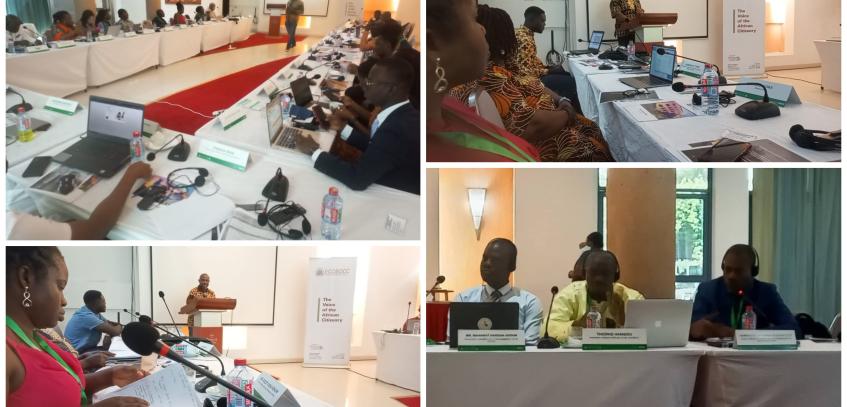In December, 2022, ECOSOCC hosted a Cross Border Dialogue on peace, security and stability in the Sahel region, with African Civil Society Organisations (CSOs). The dialogue was held under the framework of the European Union African Peace and Security Architecture (APSA) IV Programme, jointly implemented with the Common Market for Eastern and Southern Africa (COMESA), as part of ECOSOCC’s commitment to enhancing the participation of African Civil Society in the African Peace and Security Architecture.
Through a cross-border dialogue with CSOs on peace, security, and stability in the Sahel in support of the AU/G5 Sahel/Nouakchott process, the dialogue sought to enhance CSO capacity and participation in post-conflict reconstruction and development. It also served as a forum for cross-border dialogue between CSOs and key stakeholders on peace, security, and stability in the Sahel.
The CSO dialogue was held in support of the Nouakchott Process, which although has made significant and laudable progress in addressing and ultimately ending insecurity and instability in the region, still requires much work. Thus, a new approach is required, one that includes African Civil Society, particularly CSOs in the Sahel region and how they can collaborate with the AU to respond strategically to security issues through crisis/conflict management, conflict prevention, as well as post-conflict reconstruction and peacebuilding.
During the dialogue, the CSOs discussed key issues threatening the region's peace and security dynamics. Among the issues identified, were growing humanitarian needs, which add to the nature of insecurity. Furthermore, CSOs observed that as social services deteriorate and become more limited, many communities were becoming increasingly vulnerable. As a result, CSOs voiced out the need for AU member states to place a greater emphasis on bolstering Africa's development goals in order to achieve Agenda 2063 and rectify some of Africa's development issues.
The CSO cross-border dialogue concluded with key recommendations and a call to action based on representatives' experiences and lessons learned. In the context of peace and security, particularly in the Sahel, Sahara, and Western Africa regions, some of these recommendations included adopting an Afro-centric conflict prevention strategy, moving beyond sensitization to evidence-based advocacy, shifting away from solely relying on activism, and focusing more on engaging policies and policy-makers in order to inform peace and security efforts of governments.
In addition, CSOs advocated for increased measures to track and scale up best practices, called on AU organs such as ECOSOCC to increase efforts in documenting and highlighting CSOs and CBOs work on peace and security, as well as ensuring wide disseminated at all levels.
Finally, CSOs expressed a strong desire to work more closely with the African Union, inferring that greater measures be made to engage CSOs in all aspects of the AU’s programs as well as for member states to build and strengthen trust between the state and civil society.
Earlier in November 2022, ESOSOCC convened the annual CSO meeting on the state of peace and security in Africa: Sharing experiences and lessons learned.


